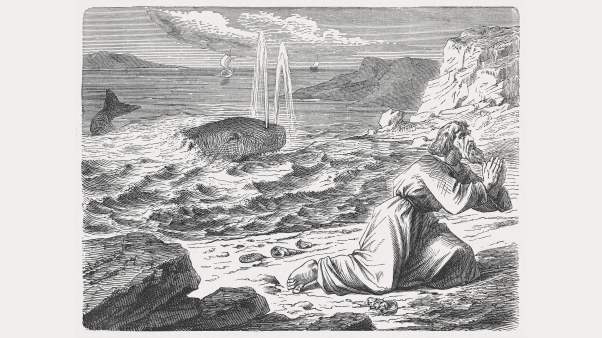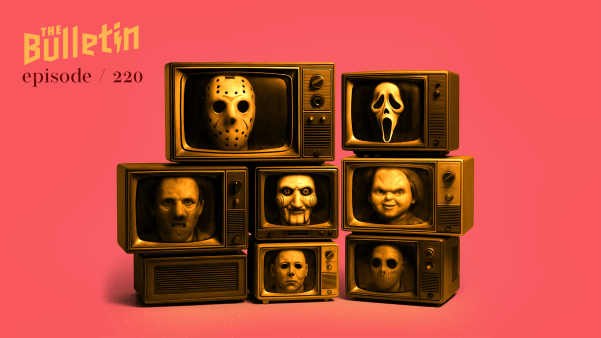As we continue to pray for, worry about, and send aid to Japan in the midst of their crisis, I can’t help but be reminded of Godzilla, the classic 1954 monster film that in some ways is comparable to current events. Like the tsunami, Godzilla was a devastating creature who rose from the sea, trampled everything in sight, and wreaked havoc on the land and its people. There was a nuke angle as well: The giant creature was born from nuclear materials, a mega-mutation from atomic radiation, with radioactive breath, no less. The parallels between that film and Japan’s current crisis are eerie, as evidenced in the original Japanese trailer

I haven't looked in a mirror since March 5, the day my pastor thumbed a black ashen cross on my forehead. I won't look at myself again until the trumpets sound under my country church steeple on Easter morning.
I gave up my reflection for Lent because I'm tired. I'm tired of the self-degradation that we engage in as women. We tell ourselves that we're not enough—or let our bathroom scales tell us that we're too much. I'm tired of how we, as women, often see ourselves and each other as a series of parts and "thigh gaps," or lack thereof. I'm tired of the photoshopping and the airbrushing, and yet, I am guilty. I deftly wield Instagram's Amaro filter to magically take five years off my face.
I'm tired of being a hypocrite in front of my daughters. At ages 12 and 9, they're now are old enough to know when I'm talking a good game and when I'm actually living what I believe. Children are mighty fine accountability partners. They are also mirrors themselves, reflecting what they see in their parents.
We've all seen news reports of the studies about preteen girls and their eating disorders. Nearly 80 percent of 10-year-olds are afraid of being overweight, according to the National Eating Disorders Association. We're quick to point an accusing finger at the glossy covers on magazine stands. But what are we modeling in front of our own mirrors while our children watch? I wonder how many times our children see us suck in our post-baby guts, scowl at our reflections, run away from cameras, or shake our heads in disbelief when someone pays us a compliment.
As Christian parents, we are the main (or at least the first) influencers in guiding our children into having a positive self-image and developing a healthy understanding of their identity in Christ—loved and accepted, as is. But now—perhaps more than ever in human history—we are being bombarded with opportunities for literal self-reflection.
Image-based social media sites "force patients to hold a microscope up to their own image and often look at it with a more self-critical eye than ever before," said Dr. Edward Farrior, president of the American Academy of Facial Plastic and Reconstructive Surgery. "These images are often the first impressions young people put out there to prospective friends, romantic interests, and employers, and our patients want to put their best face forward."
(Farrior's organization found our selfies are encouraging more people to go under the knife. One in three facial plastic surgeons saw an "increase in requests for surgery due to [patients] being more self-aware of looks in social media.")
As Christians, we subscribe to the belief that we all bear the image of God. Our best faces are already put forward—not because of Botox or Clinique but because of a divine Creator. As parents, we have the responsibility to model what it means to be secure in our identities, not only spiritually but physically as well.
A few days before I began my mirror fast, I stumbled onto a lesson on self-image, quite accidentally. I was visiting New York City and ended up outside the Today show studio during a taping. As I entered the spectator area with my mother-in-law and sisters-in-law, I was surprised to find a row of iPads, with which we were asked to take our selfies, filter-free. The photos would later be shown on national television as part of a weeklong series called "Love Your Selfie." Dressed like Eskimos with fur-lined hoods cinched tightly around our heads, we mugged for a few self-portraits. And sure enough, we ended up on TV.
In the same spirit of positive body image, a few dozen women showed up outside the studio with Sharpied signs declaring their weight—150, 165, 185. I remembered then how, when my girls had asked me innocently a few days earlier how much I weighed, I had refused to tell them. I admired the freedom that the placard-holding women embodied. I wanted that for myself, and I wanted that for my children—and for all of us as women.
A few days later I was back home in Iowa, looking in the mirror for the last time until Easter. I really took my reflection in—the whole of myself, not the parts. And this time, I didn't feel sorry for the woman in the mirror. Not at all.
I didn't frown at her. I didn't chide or criticize her, and I resisted the urge to fret over the fact that she had a rather large pimple on her nose—at age 42. I felt more tender about her than I usually do. I thought to myself, I need to love that woman better.
A day after I covered my mirrors, my younger daughter brushed up beside me in the bathroom while I was fumbling around with a flat-iron.
"Mommy," she asked, "can you cover my mirrors? I don't want you to do this alone."
She says she won't look at her reflection until our Hope rises on Easter morn.
Jennifer Dukes Lee is an award-winning storyteller and a grace dweller, blogging about faith at JenniferDukesLee.com. She is author of the book Love Idol: Letting Go of Your Need for Approval—and Seeing Yourself through God's Eyes. Jennifer and her husband are raising crops, pigs, and two humans on the Lee family farm near Inwood, Iowa.
But here’s where the parallels end: Godzilla wasn’t merely a “force of nature”; he was an imaginary product of American nuclear devastation. The bombings of Hiroshima and Nagasaki were still fresh in Japanese minds, and writer/director Ishiro Honda came up with a film that is more cultural commentary than it is monster movie. A recent New York Times editorial, titled “Japan’s Long Nuclear Disaster Film,” notes that in 1954, Japanese audiences reportedly watched the film “in somber silence, broken by periodic weeping.”
The anti-nuke message of the film means little today, of course, when Japan, which powers one-third of its electricity with nuclear power, is struggling to prevent a meltdown crisis. If only the fictional Godzilla were real today – over the course of the films, he actually changed “sides” and became a defender of Japan. Perhaps he could think of a way to protect them from the meltdown. But in his absence, Japan’s nuclear officials and engineers – with offers of help from around the world – are scrambling to contain the mounting threat.
Meanwhile, Hollywood is considering the plight of one of its greatest sources of revenue. According to a story in yesterday’s LA Times, Japan is the No. 1 foreign market for Hollywood films, generating $2.5 billion in box office receipts last year, $700 million ahead of No. 2 foreign market France. The story reports that “Hollywood studios are undoubtedly counting on Japan to play an important role in the success of their big budget summer tentpoles such as Kung Fu Panda 2, Green Lantern, and Transformers: Dark of the Moon.” The story says that Hollywood execs are now reconsidering their release plans, depending on how quickly the nation recovers.
The recovery may take some time, and along the way, Japanese people may or may not be interested in going to the movies. Something as trivial as a movie seems like the last thing you’d want to do if you’ve lost loved ones, your home, and more. On the other hand, trends show that people sometimes flock to the movies to escape the harsh realities of life, so it’s hard to say how our friends in Japan might react in the weeks and months – and maybe years – ahead.
In the meantime, at least one American film distributor is moving forward with plans to show a movie in Japan: Campus Crusade for Christ, which for decades has shown the evangelistic film Jesus to billions of viewers around the world. Japanese Campus Crusade teams are already on the ground, as staff and volunteers deliver aid, food, and more to the displaced and the devastated. The ministry’s Japanese teams are asking for 50,000 DVDs of the Jesus film (in Japanese, of course) to share with their countrymen.
When I first heard about this, I thought it was a bit tacky – because while there are people all over the world who certainly need Jesus, what the Japanese need right now is food, shelter, warmth, medical aid, and comfort. But there are so many with no place to go, nothing to do, but just sit and wait for help to come. And as noted before, hurting people often like to escape to the movies; why not show a film that offers the greatest hope of all? Between that and knowing that the Japanese teams are asking for the film – and the decision isn’t just being made at CCC’s Orlando headquarters – I’m good with it. (If you’re interested on donating to help get those DVDs to Japan, click here.)








